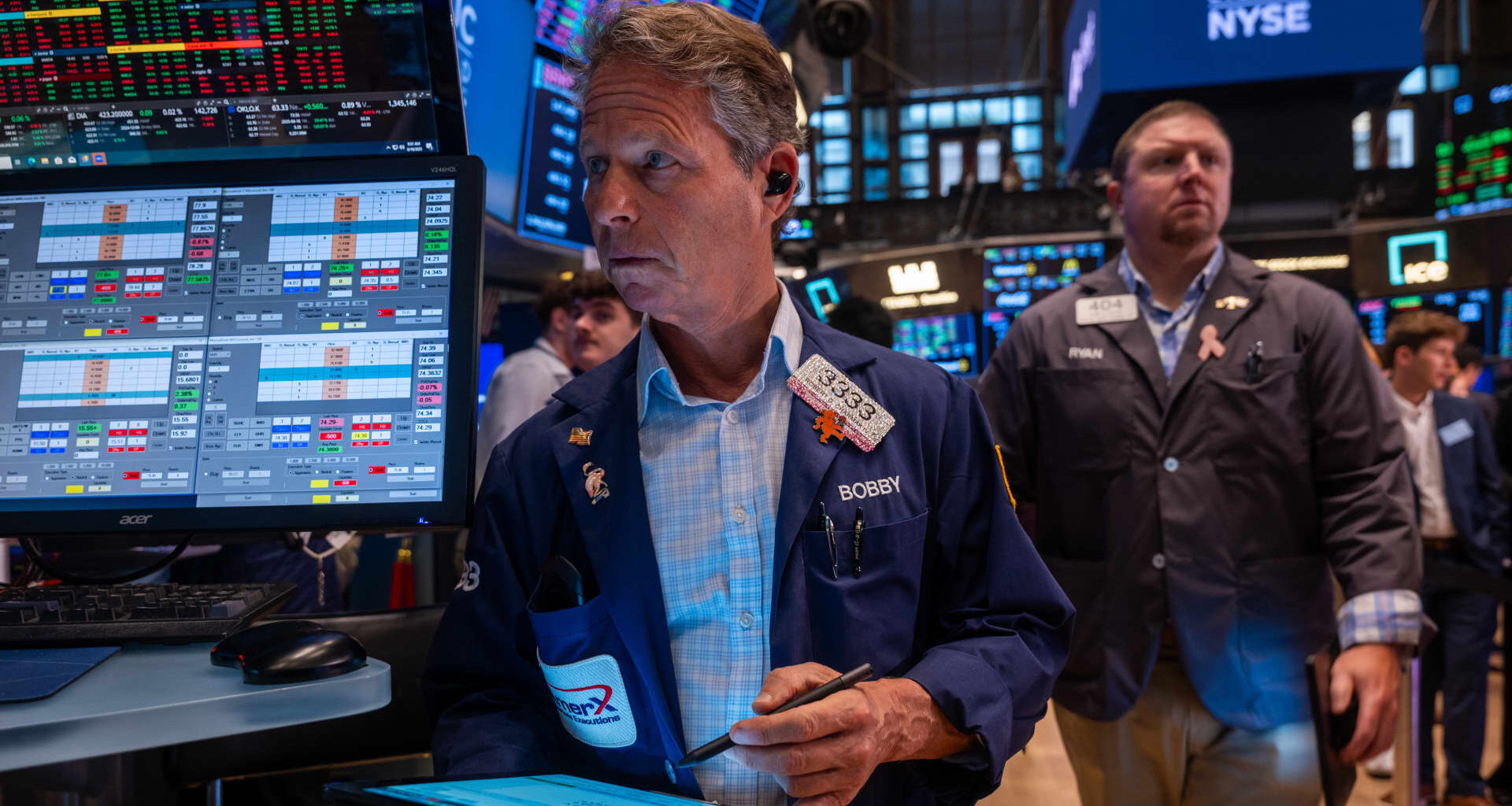Traders work on the floor of the New York Stock Exchange (NYSE) on June 18, 2025 in New York City.
Spencer Platt | Getty Images
S&P 500 futures fell on Thursday, bogged down by a further pullback in Nvidia and Oracle, as investors awaited upcoming unemployment data.
Futures linked to the broad market index traded lower by 0.4%, while Nasdaq-100 futures slipped 0.5%. Futures tied to the Dow Jones Industrial Average dropped 65 points, or 0.1%.
Nvidia and Oracle saw more losses in the premarket, sliding 1% and 2%, respectively. The two fell for a third straight day on Wednesday as questions over the state of the artificial intelligence trade lingered. The recent market action appears to be reflecting concerns about record-high valuations and potentially risky circular relationships in the AI industry after some recent deals.
Declines in those names, along with Micron Technology, led the major averages to close lower for a second day in a row on Wednesday.
Thursday’s release of weekly jobless claims data will provide a key economic data point that could influence the Federal Reserve’s monetary policy moves amid increasing concerns about a weakening labor market and rising layoffs. Initial unemployment claims last week eased after a brief spike the week prior.
Fed Chair Jerome Powell said on Tuesday that a slowing labor market is outweighing concerns about stubborn inflation, which contributed to the Federal Open Market Committee’s recent decision to lower interest rates for the first time this year. Powell noted “a marked slowdown” in supply and demand and said that “in this less dynamic and somewhat softer labor market, the downside risks to employment have risen.”
Salvatore Ruscitti, U.S. equity strategist at MRB Partners, said he does not expect the recent hiring slump to become a “self-reinforcing negative cycle” that causes a spike in layoffs.
“On the jobless claims data, clearly it is a focus of the equity markets, especially with the Fed leaning more towards emphasizing the maximum employment part of its mandate,” Ruscitti said. “I think you would have to see a meaningful spike higher in weekly jobless claims to elicit a meaningful negative reaction in the equity market.”
Investors are also cautious ahead of the personal consumption expenditures price index due Friday and are monitoring developments regarding a potential government shutdown.
“Congress is out of session this week as the September 30th deadline to fund the government and avoid a shutdown nears,” said Bank of America economist Stephen Juneau. “The likelihood of a shutdown is certainly high and seemingly rising by the day.”
If the government were to shut down, that could mean mass firings in the federal government, as the Office of Management and Budget has said in a memo that agencies should prepare “reduction in force” plans, according to NBC News.

